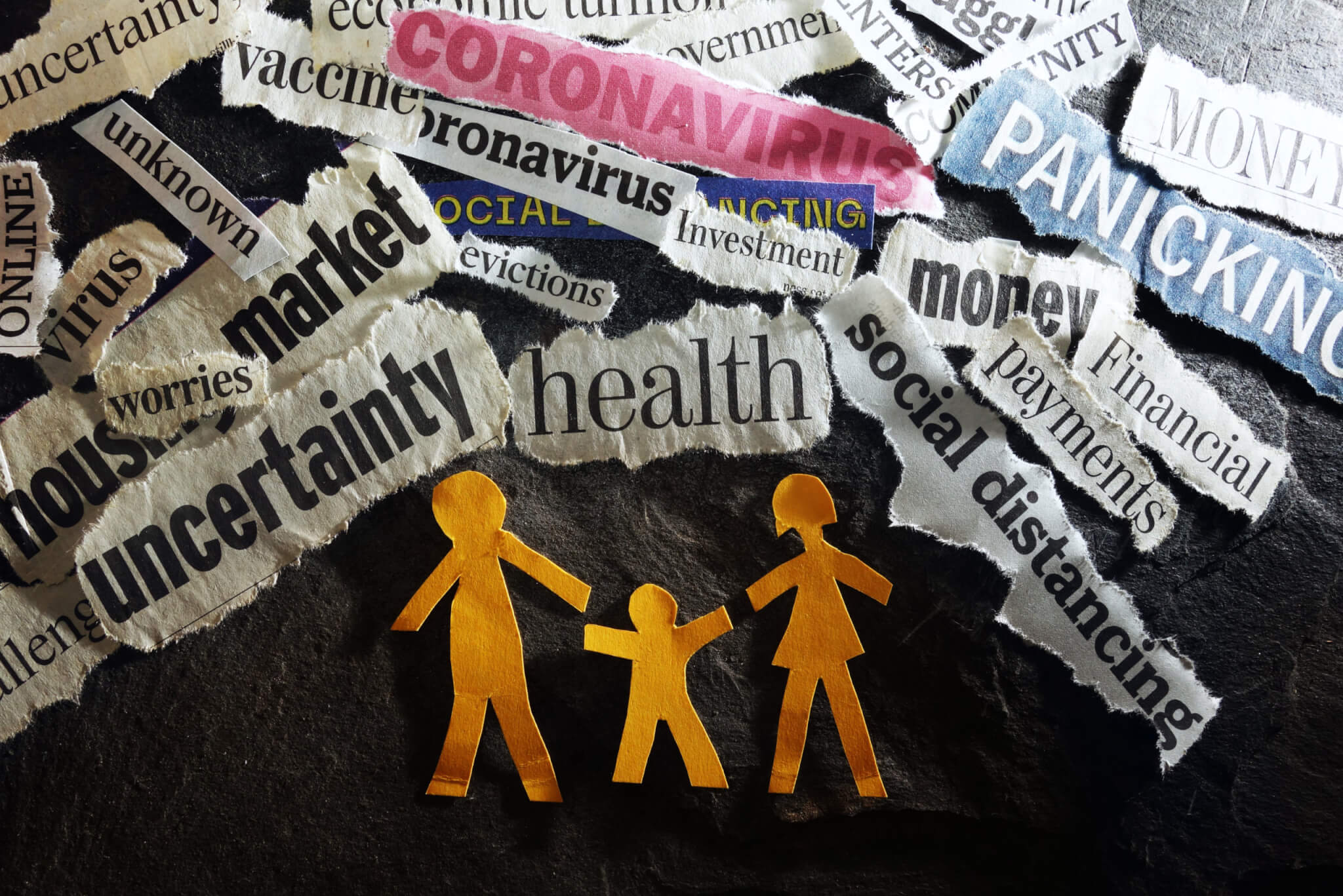“If it bleeds, it leads” has long been a saying used in the media to describe how news stories featuring violence, death and destruction grab readers’ attention – and so dominate the news agenda. And, while many of us are aware of the negative effect that these kinds of story can have on us, it can still be hard to look away. We’re hardwired to sit up and take notice of them.
This “surveillance mode” is thought to be an evolutionary hangover from a time where survival odds were increased when we attended to the threats in our environment.
Research consistently shows bad news can have a negative effect on us. During the pandemic, multiple studies linked news consumption to poorer mental health, documenting symptoms of depression, anxiety, hopelessness and worry. In our research, we found that spending as little as 2-4 minutes on Twitter or YouTube reading about the pandemic affected people’s moods adversely.
However, our latest study has found that looking at positive news stories – specifically, videos and articles featuring acts of kindness – can actually counteract the ill-effects of seeing negative news stories.
Less decline in mood
To conduct our study, we showed 1,800 participants news stories. Some only saw negative news stories – including footage of the Manchester bombing, animal cruelty, or brutal acts of violence.
Others were shown a negative news story, followed immediately by a positive news story. The positive story featured kind acts such as acts of heroism, people providing free veterinary care for stray animals, or philanthropy towards unemployed and homeless people.
We then asked participants to report how they felt before and after viewing the news content. We also asked them how inclined they were to believe in the goodness of others. The group that was shown negative news stories followed by positive ones fared far better than people who were only shown a negative news story. They reported less decline in mood – instead feeling uplifted. They also held more positive views of humanity generally.

Curious to know whether there was something special about kindness specifically, we also tested how people exposed to a negative news story followed by an amusing one (such as swearing parrots, award-winning jokes or hapless tourists) fared. Amusing news stories certainly helped buffer the effects of bad news and reduce the mood disturbances they caused. But in comparison, participants who’d been shown acts of kindness reported a more positive mood on average, and a greater belief in the goodness of humanity.
This shows us there’s something unique about kindness which may buffer the effects of negative news on our mental health. However, further research is needed to establish whether these are long-term benefits, as we only measured how people felt immediately afterwards.
The power of kindness
There are many reasons why kindness may have this protective effect on our mood.
First off, it is valued universally. Seeing acts of kindness may remind us of our connection with others through shared values. It may also help us maintain the belief that the world and people in it are good, which is important for our wellbeing.
Third, seeing others being helped is the resolution to seeing them hurt. So-called “catastrophe compassion”, whereby positive behavior prevails despite negative circumstances, provides relief to the pain we experience when we see others suffering. Or, as one of our participants explained: “Knowing that there are a lot of people that are genuinely willing to help those affected by this attack somehow gives me a relief.”
Similarly, other research has found that even when children had not caused or were not connected to the suffering of another person, they experienced a reduction in physiological stress simply by seeing the hurt person being helped.
Fourth, countless research has shown that witnessing others’ acts of moral beauty, such as kindness or heroism, triggers “elevation” – a positive and uplifting feeling which experts theorise acts as an emotional reset button, replacing feelings of cynicism with hope, love and optimism.
It will be important for future research to investigate which specific reasons explain why kindness has the protective effect that our research has demonstrated.
A powerful tool for boosting wellbeing
It’s clear that kindness is a powerful tool for boosting wellbeing. In my research, I found that doing an act of kindness a day can increase life satisfaction. And more recently, researchers found that selflessness trumps selfishness when it comes to improving your happiness. Less is known about whether making a conscious effort to notice kindness has the same wellbeing benefits, although one study found that observing others’ kindness is as effective in boosting happiness as performing an act of kindness.
Our latest study shows that kindness-focused news stories can take the sting out of difficult, depressing coverage by replacing feelings of despair with hope. As another participant put it: “I still feel that we’re fundamentally decent … And that’s worth clinging to.”
Perhaps including more kindness-based content in news coverage could prevent “mean world syndrome” – where people believe the world is more dangerous than it actually is, leading to heightened fear, anxiety and pessimism.
Other research has also found that positive news – such as bumble bees making a comeback or peace talks going well – make people feel better and want to do good things, such as voting or donating. This suggests there may be both personal and social benefits to showing positive news.
While it will be up to the media to make the change, our research makes the case for adding more balance to news coverage. Including more stories of kindness may help people feel better able to engage with these stories without perpetuating feelings of doom and hopelessness.![]()
Article written by Kathryn Buchanan, Lecturer, Psychology Department, University of Essex
This article is republished from The Conversation under a Creative Commons license. Read the original article.

